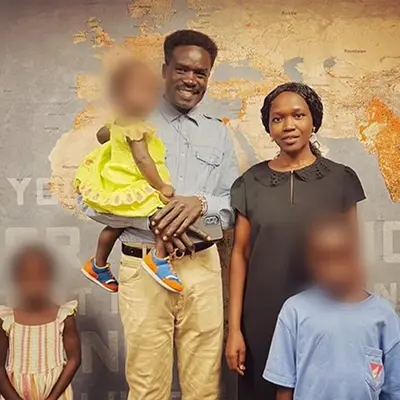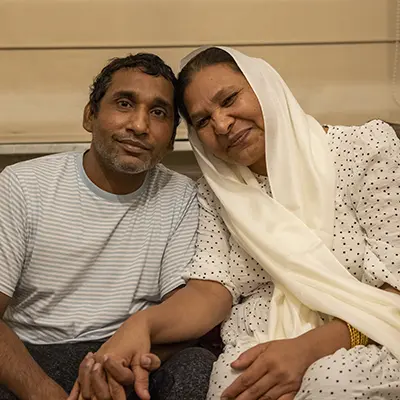- European Court of Human Rights rules that Belgium failed to conduct proper investigation into circumstances of the 2012 euthanasia of Godelieva de Troyer
- While judgment dismissed challenge to Belgium’s euthanasia legal framework, the facts of the case send clear warning about the dangers of euthanasia and the fiction of legal ‘safeguards’
You are currently viewing a placeholder content from YouTube. To access the actual content, click the button below. Please note that doing so will share data with third-party providers.
More InformationSTRASBOURG (4 October 2022) – In a major case on the right to life, the European Court of Human Rights ruled in favour of Tom Mortier, son of Godelieva de Troyer, who died by lethal injection in 2012, aged 64. Her euthanasia was conducted on the basis of a diagnosis of “incurable depression”. In the case of Mortier v. Belgium, the Court found that Belgium violated the European Convention on Human Rights when it failed to properly examine the alarming circumstances leading to her euthanasia.
The Court held that there was a violation of Article 2 of the European Convention on Human Rights that everyone’s right to life shall be protected by law. This judgment was with regard to the way in which the facts surrounding de Troyer’s euthanasia were handled by Belgium’s Federal Commission for the Control and Evaluation of Euthanasia and the promptness of a criminal trial following de Troyer’s death. It did not, however, rule that there was any violation of Belgium’s legislative framework for the practice of euthanasia.
Per the Court, “taking into account the crucial role played by the Commission in the a posteriori control of euthanasia, the Court considers that the control system established in the present case did not ensure its independence”. It thus found that Belgium failed to fulfil its positive procedural obligation under Article 2 of the Convention both because of the lack of independence of the Commission and due to lack of promptness of the criminal investigation. The holdings that there was no violation of Belgium’s legislative framework and no violation of Article 2 for the conditions of the euthanasia were five votes to two.
“We welcome the Court’s finding of an Article 2 violation, which demonstrates the inadequacy of ‘safeguards’ for the intentional ending of life. The decision counters the notion that there is a so-called ‘right to die,’ and lays bare the horrors that inevitably unfold across society when euthanasia is made legal. Unfortunately, while the Court indicated that more ‘safeguarding’ is an appropriate solution to protecting life, in its own ruling it makes clear that laws and protocols were indeed insufficient to protect the rights of Tom’s mother.
It is unfortunate that the Court dismissed the challenge to the Belgian legal framework; however, the takeaway is that the ‘safeguards’ touted as offering protection to vulnerable people should trigger more caution toward euthanasia in Europe, and the world. The reality is that there are no ‘safeguards’ that can mitigate the dangers of the practice once it is legal. Nothing can bring back Tom’s mother, but we hope this decision offers Tom some small measure of justice,” said Robert Clarke, Deputy Director of ADF International, who represented Tom Mortier before the Court.
The facts of the case highlight the myriad dangers that arise when euthanasia is legalized, and make clear that even legal ‘safeguards’ are not sufficient to protect the right to life when the practice of intentionally ending a life is available under the law.
In this case, Tom’s mother was able to approach the country’s leading euthanasia advocate who, despite being a cancer specialist, ultimately agreed to euthanize her. Over a period of just a few months, she made a financial payment to his organization and was referred by him to see other doctors who were also part of the same association despite a requirement for independent opinions in the case of individuals not expected to die soon. The same doctor that euthanized her is also co-chair of the Federal Commission charged with approving euthanasia cases after the fact, including this one, demonstrating a clear conflict of interest. Despite Belgium euthanizing an average of seven people per day, the Commission has only ever referred one case for further investigation.
“The big problem in our society is that apparently, we have lost the meaning of taking care of each other”
These were Mr. Mortier’s words after the euthanasia of his mother. Prior to her death by euthanasia, neither he nor any family member was consulted. According to the oncologist who administered the lethal injection to his mother, her diagnosis was ‘untreatable depression’.
Euthanasia in Belgium has been legal since 2002. The law specifies that the person must be in a “medically futile condition of constant and unbearable physical or mental suffering that cannot be alleviated, resulting from a serious and incurable disorder caused by illness or accident”.
Mr. Mortier’s mother was physically healthy, and her treating psychiatrist of more than 20 years doubted that she satisfied the requirements of the Belgian euthanasia law. Neither the oncologist who administered the injection nor the hospital informed him that she was even considering euthanasia. Mr. Mortier found out the day after she was euthanized when the hospital asked him to make the necessary arrangements.
Mr. Mortier recalled: “My mother suffered from severe mental difficulties, and coped with depression throughout her life. She was treated for years by psychiatrists, and sadly, she and I lost contact for some time. It was during this time that she died by way of lethal injection. Never could I have imagined that we would be parted forever.”
In response to the ruling, he stated:
“This marks the close of this terrible chapter, and while nothing can alleviate the pain of losing my mother, my hope is that the ruling from the Court that there was indeed a violation of the right to life puts the world on notice as to the immense harm euthanasia inflicts on not just people in vulnerable situations contemplating ending their lives, but also their families, and ultimately society”.
Positive precedent set by European Court of Human Rights
“This ruling serves as stark reminder. It is clear that the so-called ‘safeguards’ failed because intentional killing can never be safe. We must be unfailing in our commitment to advocating for the right to life and the truth that people have inherent dignity no matter their age or health condition,” said Robert Clarke.








